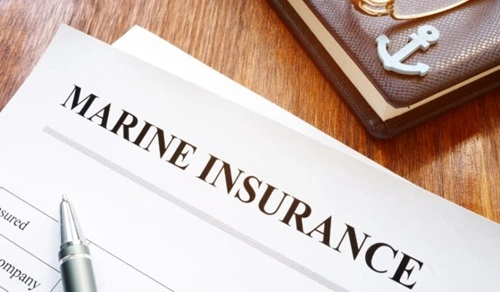The maritime business faces significant risks and damages occurring due to the perils of the sea. Hence, it is important to have transit insurance to safeguard the cargo and other property.
However, the marine insurance landscape operates on various clauses, which form its foundation. Thus, understanding these clauses becomes necessary to navigate the landscape smoothly.
What is a Marine Insurance Clause?

Marine insurance clauses are provisions that outline the scope of the insurance within the marine insurance meaning, the rights and responsibilities of insurer and insured, etc. These clauses are a crucial element of the insurance policy, as they facilitate better understanding.
Broadly speaking, the clauses can be divided into categories such as risk coverage, additional protection and exclusions. Some common clauses are: Institute Cargo Clause, At and From Clause, Valuation Clause, Sue and Labour Clause, etc.
Let us understand these clauses in detail below.
Types of Marine Insurance Clauses
Valuation Clause
As per the valuation clause, the value of the insured goods or property is decided in advance between the insured and the insurer. In case any of the covered incidents happen and damage occurs to the insured cargo/property, the insurer will pay compensation up to the valuation agreed upon. For example, if the valuation of the insured cargo is ₹2 lakhs, in case of damage or loss, the insurance company will pay a maximum of ₹2 lakhs only.
At and From Clause
This clause specifies the exact place and time when the insurance policy will come into effect. It is generally mentioned for freight and hull insurance. For example, if the clause says at and from Mumbai, the risk coverage will begin from the time the ship is in Mumbai and till it departs Mumbai.
Sue and Labour Clause
The Sue and Labour clause encourages the insured to take all the necessary steps to prevent and minimise losses. The insurer will reimburse all the expenses that the insured incurs in this regard. For example, if the insured finds out about bad weather conditions on the route, which can damage the goods and drive the ship to a safer route, the expenses that he incurs in doing so will be reimbursed by the insurer.
Institute Cargo Clause
It defines the scope of coverage of the cargo insurance. There are three levels of protection under this clause.
ICC (A): It offers coverage for all types of risks, except the ones that are specifically excluded. For example, war, nuclear peril, riots, etc.
ICC (B): It covers the perils that are mentioned in the policy. For instance, fire and explosion, storm, collision, etc.
ICC (C): It provides coverage only for specific/limited perils. For example, stranding, collision, etc.
Warehouse to Warehouse Clause
It protects the cargo or goods from one warehouse to another. For example, if the goods are being shipped from country A to country B, this clause states that the goods will receive insurance protection from the warehouse of country A to the warehouse of country B.
Jettison Clause
Under this clause, the insurance policy provides coverage for the goods that are jettisoned/thrown from the ship to save the ship and other cargo during a marine emergency.
Inchmaree Clause
The Inchmaree clause protects the hull and machinery from damage due to negligence of the crew members, captain or other personnel on board. For example, it may cover the loss due to a failed engine of the ship, which may cause an accident and damage to the goods.
Change of Voyage Clause
This clause provides coverage for the vessel and goods in case the ship’s route changes. However, the coverage is applicable only if the deviation in the route is communicated to the insurer.
Memorandum Clause
The memorandum clause saves the insurer from paying damage compensation to the insured in the case of perishable goods. For example, if the insurer is exporting boxes of candies to a buyer, some boxes of candies may get spoiled due to their nature. Here, the insurer is not liable to pay anything to the insured.
Enhance Marine Safety with TATA AIG Insurance Plans
One of the most effective ways to reduce the financial impact of losses in a marine business is to opt for a marine insurance plan. And when the insurance provider is TATA AIG, you can rest assured that your insured property/cargo will receive comprehensive coverage.
TATA AIG’s marine policies are highly efficient and beneficial for ship owners, cargo businessmen, freight forwarding agents, etc. At affordable premium rates, you can get coverage from various sea perils, such as cyclones, tsunamis, fire and theft, piracy attacks, etc.
Santosh Kumar, the author behind IndiasStuffs.com, is passionate about sharing valuable insights on a variety of topics, including lifestyle, technology, and Indian culture.
Page Contents

